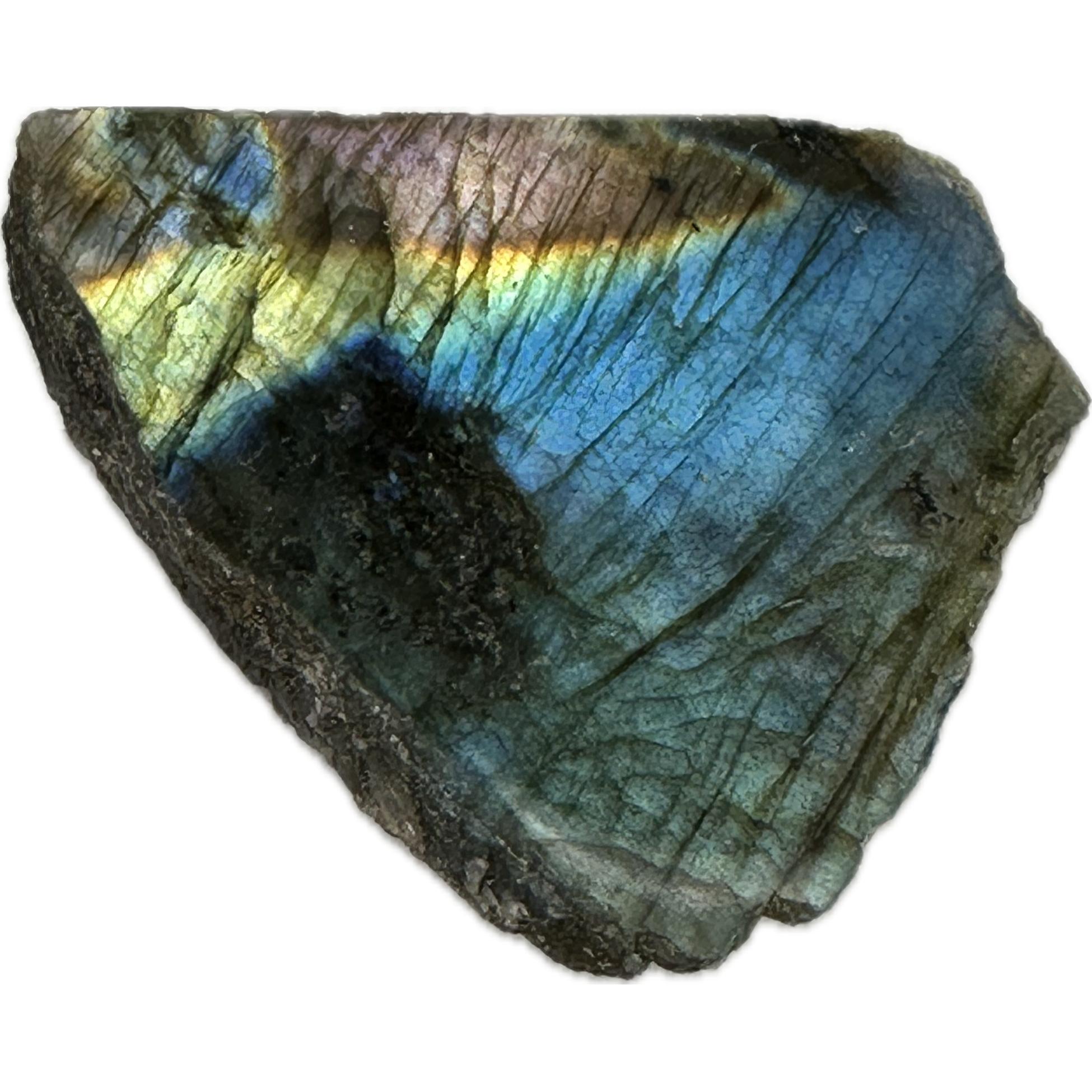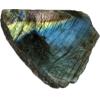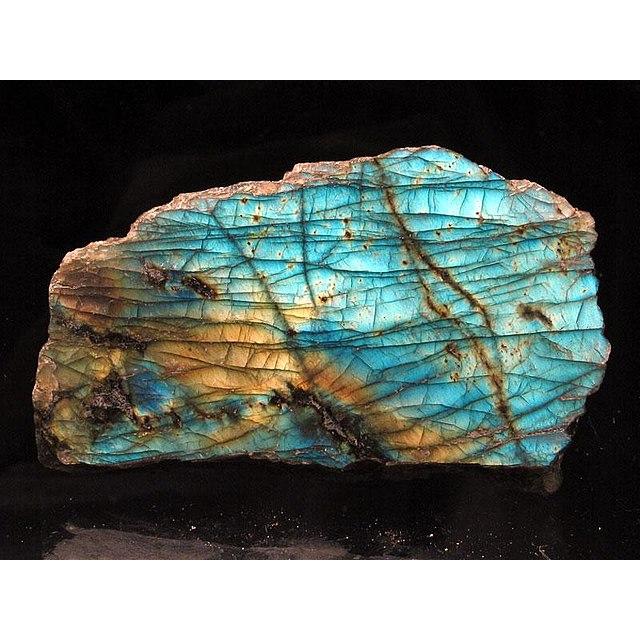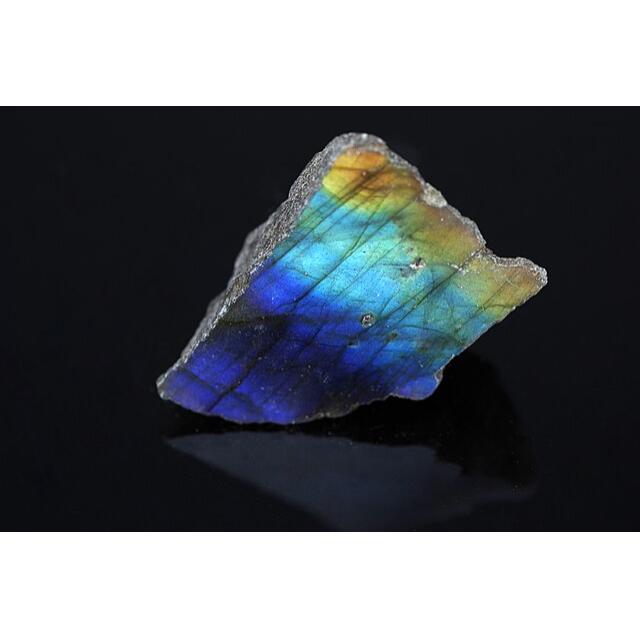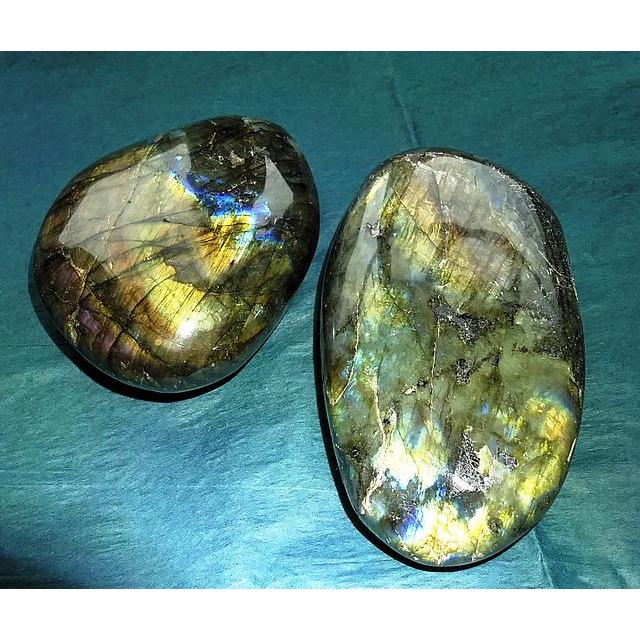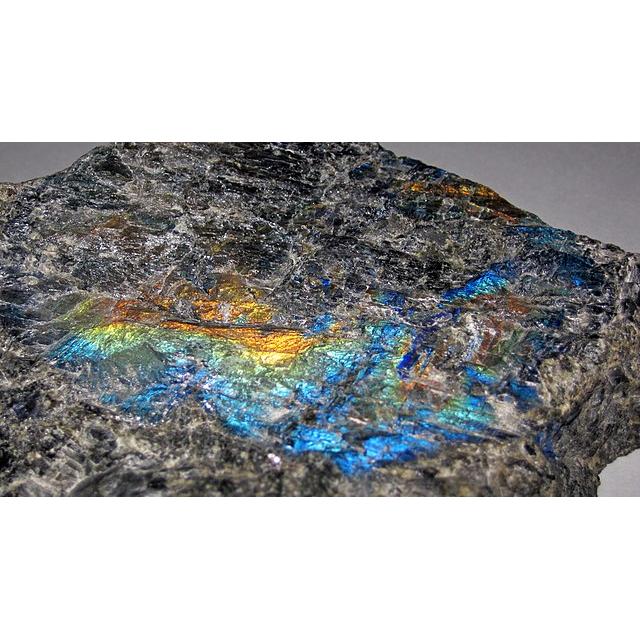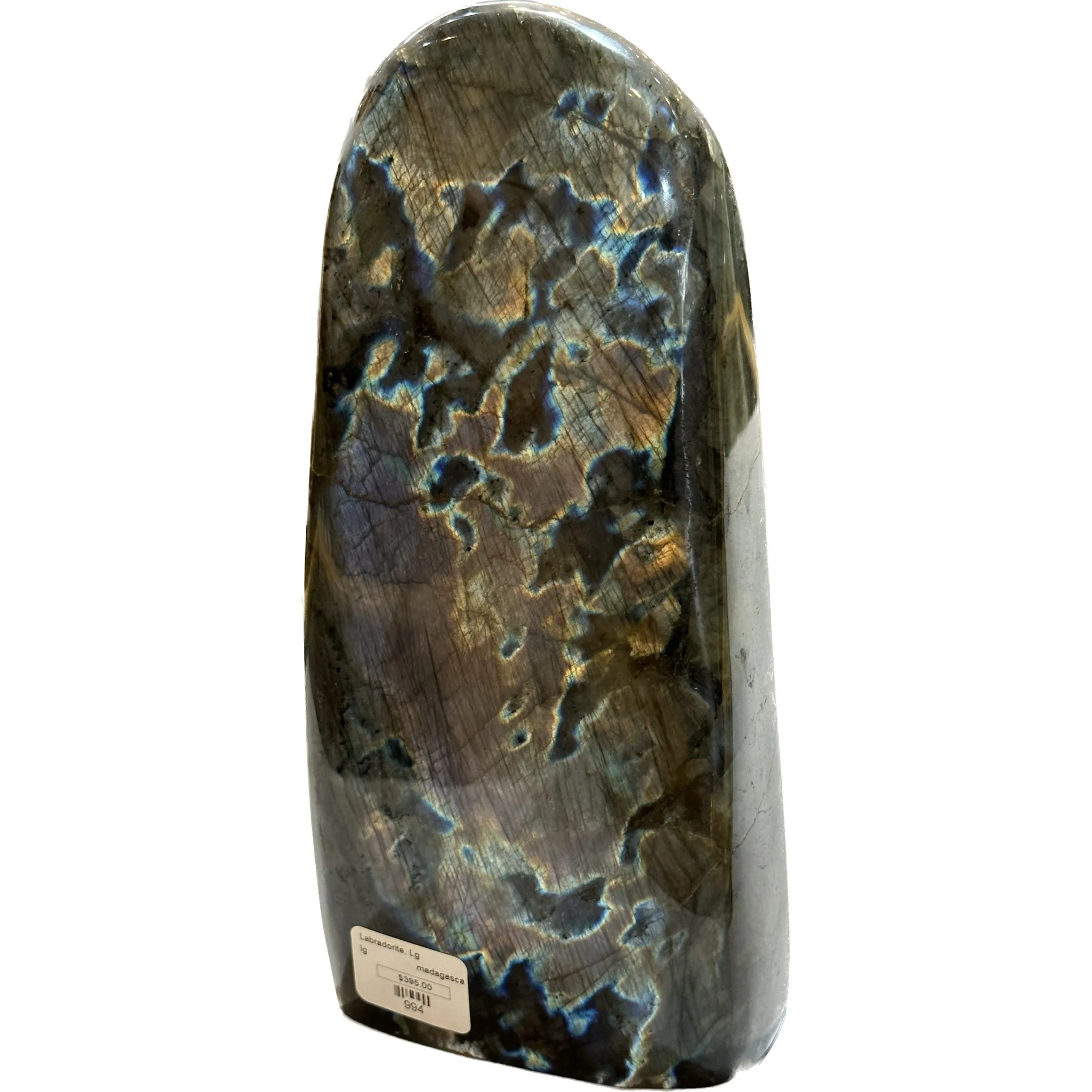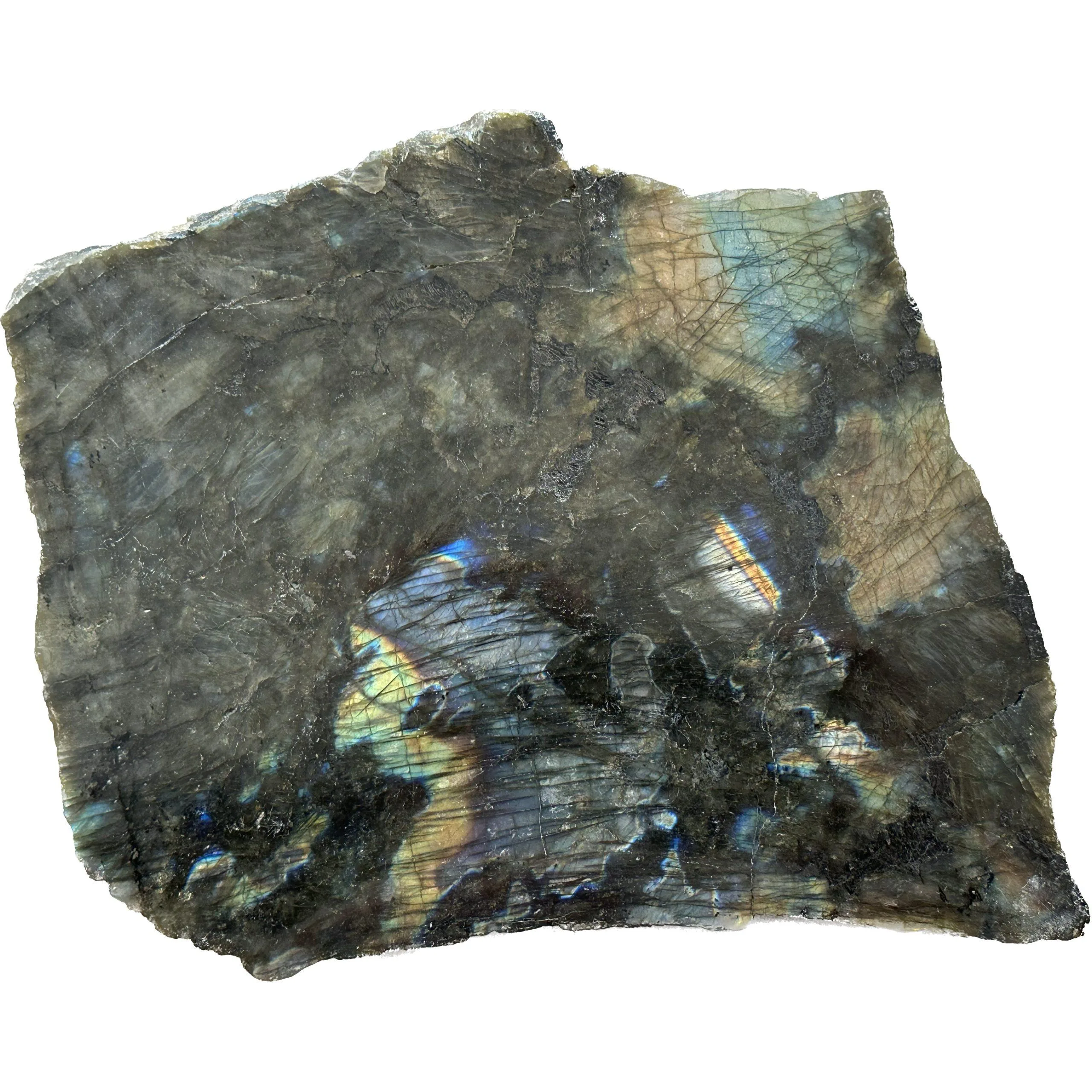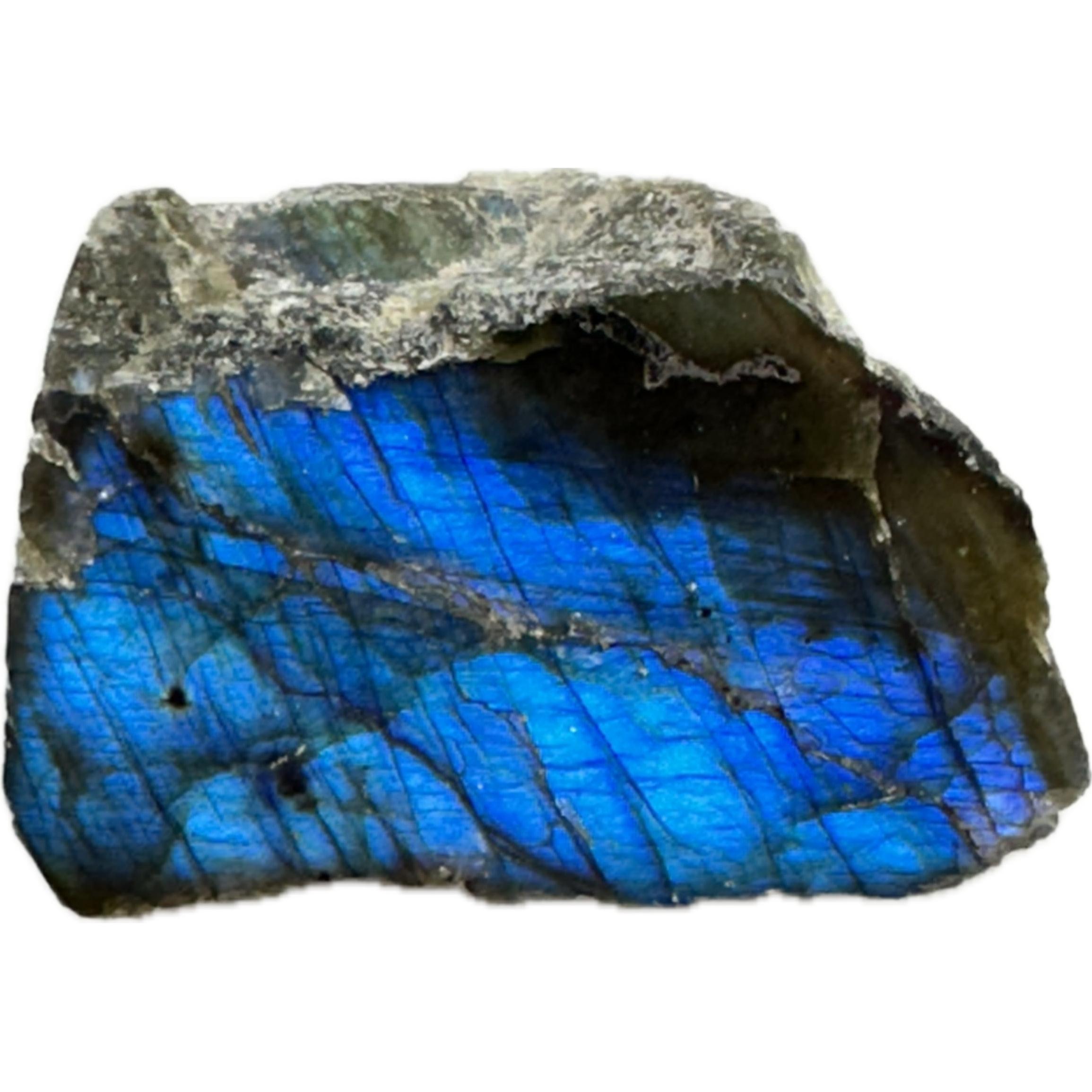Labradorite is a stunning gemstone renowned for its captivating play-of-color, which exhibits a spectrum of iridescent hues when light strikes its surface at various angles. This mineral belongs to the feldspar group and is composed of calcium, sodium, aluminum, silicon, and oxygen. Its name is derived from Labrador Peninsula in Canada, where it was first discovered in the late 18th century by Moravian missionaries.
Physical Properties:
Labradorite typically displays a gray to black base color, often with flashes of vibrant colors such as blue, green, gold, orange, and sometimes even purple. This phenomenon, known as labradorescence, occurs due to the presence of microscopic lamellae within the stone that refract light. The intensity and variety of colors depend on the angle of incidence and the quality of the stone.
In terms of hardness, labradorite measures around 6 to 6.5 on the Mohs scale, making it relatively durable and suitable for use in jewelry. Its crystal structure is triclinic, which means it has three unequal axes and no right angles.
Occurrence:
Labradorite is primarily found in igneous rocks, particularly in anorthosite and gabbro formations. Significant deposits are located in various parts of the world, including Canada, Finland, Madagascar, Norway, Russia, and the United States. The gemstone is often mined through both surface and underground methods.
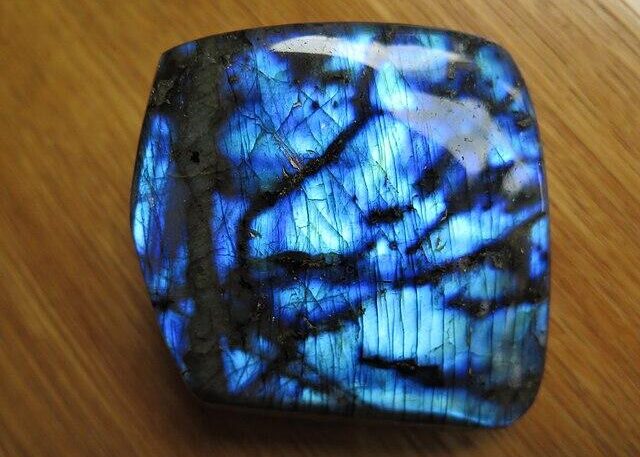
Historical Significance:
Throughout history, labradorite has been revered by various cultures for its mystical and metaphysical properties. Indigenous peoples of Canada, particularly the Inuit, believed that labradorite was created from frozen fire, attributing its iridescence to the Aurora Borealis, which they regarded as a manifestation of the spirits of their ancestors.
In the late 18th and early 19th centuries, labradorite gained popularity among European lapidaries and jewelry artisans. Its unique optical properties made it a favored material for crafting ornate pieces of jewelry and decorative objects during the Art Nouveau period.
Metaphysical Properties:
Labradorite is often associated with spiritual awakening, intuition, and transformation in metaphysical beliefs. It is believed to enhance one’s psychic abilities, intuition, and perception of the unseen realms. Some practitioners use labradorite for meditation, as it is thought to facilitate a deeper connection with the higher self and spiritual guides.
The stone is also said to provide protection against negative energies and psychic attacks, acting as a shield for the aura. Additionally, labradorite is believed to promote emotional healing, balance, and self-discovery, encouraging individuals to embrace their true selves and release any fears or insecurities.
Uses:
Due to its striking appearance and durability, labradorite is highly sought after in the jewelry industry. It is commonly faceted into various shapes such as cabochons, beads, and faceted stones, which are then set into rings, earrings, necklaces, and bracelets. Labradorite’s iridescent colors make each piece of jewelry unique, adding a touch of elegance and mystique to any ensemble.
Beyond jewelry, labradorite is also utilized in the creation of decorative objects, such as sculptures, figurines, and ornamental tiles. Its iridescent surface lends a magical quality to any artistic or architectural piece, making it a favorite among designers and artisans.
In addition to its aesthetic appeal, labradorite is sometimes used in alternative healing practices, including crystal healing and energy work. Practitioners believe that placing labradorite on specific energy centers of the body can help restore balance, harmony, and vitality to the individual.
Prehistoric 101 (Learn about fossils, minerals, and meteorites)
Learn: Agate
Learn: Labradorite

